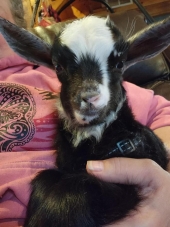


Hugo Morvan wrote:I got a canoo and went to all lakes where i am to collect as many differing plants and ecosystems (critters on plants and microbes) as possible. I had fish in there which i never fed for years, water stayed superclean till this day. Biodiversity is what does it.
If mosquitos are your problem, when i came to this house, we had to have a mosquito net to sleep. I planted as many differing trees ,shrubs and herbs around the garden as i could find( in the wild and in clients gardens). Now bats and birds and swallows keep it mosquito free. I can sleep with the window open. And i made 1 pond, and have 5 open basins full of rainwater. Again, biodiversity..
Scott Leonard wrote:My 2cts worth; Harvest weight should be how heavy/big you are still comfortable when handling the animal. The advantage to "bonus" livestock headed to the freezer is you get a pass on the weight, if you get it too big and you get bonus experience , as opposed to having 10-20 to process and knowing after the 1st that " if only I had done this 2 months ago" and have a slog to get to the end. Castration; the moment you think it, do it, whatever way you choose they all work. waiting will get you more goats in the spring, the does will get to the bucks, and vice versa, and the bucks get the job done long before a novice believes they're capable. The only true way to separate breeding viable goats is with a freezer
Mark Miner wrote:Hi Tori,
If you choose not to band, the meat quality is better with a somewhat earlier/younger kill, avoiding adolescence. If you think you might not get around to it before they go through adolescence, banding will buy you time. A wether goat (castrated buck) can also be used as a pack animal if trained to it, but while some friends of ours have gone this route, we have butchered the male kids. We have kept a buck for breeding in the past, but it's easier to cycle through different bucks to keep the bloodlines good. Letting one of our own bucklings mature would require new doe genetics, which is more of a hassle.
If you have really high quality bloodlines, though, keeping the best one as a sire-for-hire could be a path.
Congrats on the successful kidding, and good luck!
Mark